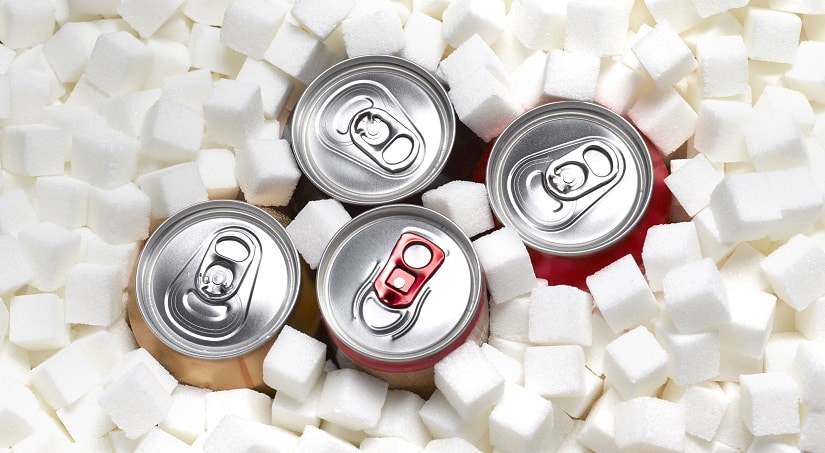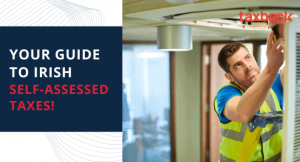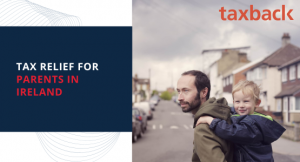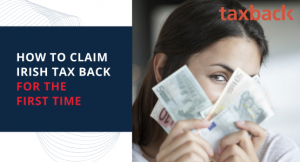Everything You Need To Know About Ireland’s (SSDT) Sugar Sweetened Drinks Tax
On 1 May 2018, the Sugar Tax officially came into effect in Ireland after being announced in Budget 2018.
The Sugar Tax was given the official name of the Sugar Sweetened Drinks Tax.
The tax was introduced after the UK introduced their own Sugar Tax known as the Soft Drinks Industry Levy in April 2018.
In this article we answer some of the most frequently asked questions about the Sugar-Sweetened Drinks Tax.
What is the SSDT?
The Sugar-Sweetened Drinks tax is a levy on drinks with an added sugar content.
The tax applies to both juice and water based drinks with added-sugar.
Why was the SSDT introduced?
The reason for the introduction of the SSDT was to tackle the high rates of obesity (especially among children) in Ireland that were linked with the consumption of sugary drinks, while also raising some revenue for the state.
By increasing the price of drinks with added sugar, the government hoped that this would reduce consumption and improve the health of the nation.
The Irish Heart Foundation campaigned for the introduction of this tax for a long period of time as they felt it was crucial in Ireland's fight against childhood obesity.

What drinks are taxable?
Ready to consume drinks are taxable if they meet the following criteria:
They contain added sugar The total content of sugar in the drink is 5g or more per 100ml They are classified within certain headings of the Combined Nomenclature of the EU (CN 2009 and CN 2202)
Drinks within the CN 2009 AND CN 2202 headings include:
-
Flavoured water
-
Carbonated drinks
-
Juice drinks
-
Energy drinks
Drinks containing plant protein and milk fats are excluded from this tax if they have a certain calcium content.
If the label of a drink product states that there is a minimum of 119 milligrams of calcium per 100ml, this product is not liable for SSDT.
Drink products with no added sugar are not taxed, for example, Diet Coke and Coke Zero.
Who is impacted by the Sugar Tax?
Consumers are impacted by the SSDT as the price of sugar/sweetened drinks is higher.
Companies who supply sugary/sweetened drinks are impacted by the sugar tax including:
-
Producers
-
Importers
-
Wholesalers
-
Distributors
-
Retailers
The “first suppliers” of these added-sugar drinks are those who must pay the sugar tax and are liable to collect and make payment to Revenue.
The SSDT must be collected on a self-assessed basis, this means that the company/individual responsible for paying the tax must assess their tax liability and make a payment/file a tax return based on this.
“First suppliers” are those who manufacture and import these taxable drinks before selling them to retailers, wholesalers and consumers.
Where the “first supply” of the sugar-sweetened drink is to a company or consumer outside of the state, the SSDT tax does not apply.
Where taxable goods are returned to the supplier after the supplier has filed and paid the SSDT, a relief may apply.
Download your FREE Self-Assessed Irish Tax Guide
How much is the Sugar-Sweetened Drinks Tax?
The value of the SSDT depends on the added sugar content in each drink.
For drinks with a sugar content over 5g and below 8g per 100ml, the tax is at 16.26 cent per litre, this amounts to 20 cents including VAT.
For drinks with over 8g of sugar per 100ml, the tax is 24.39 cents per litre, this amounts to 30 cents including VAT.
For example, for a can of Coca Cola with 330ml which has over 8g of sugar per 100ml, the tax will be 10 cents.
Has the SSDT been successful in Ireland?
It appears that the Sugar-Sweetened Drinks Tax has been successful in Ireland as there has been a reduction in the consumption of high sugar drinks since its introduction.
By increasing the price of drinks high in sugar, the demand for these products decreased as consumers seek more affordable and low-sugar drinks options.
The tax also encouraged manufacturers to reduce the content of sugar in their drinks to avoid incurring this tax.
It was predicted that the SSDT would generate €40 million in Revenue every year.
In 2020, the tax generated €31.3 million in revenue which was €2 million less than in 2019.
If you are a business that has to pay the Sugar Sweetened Drinks Tax and you need help filing your Irish self-assessed tax return - look no further.
Taxback.com is here to help!
We can prepare and file your self-assessed tax return and claim any tax deductions/reliefs you may be entitled to.
If you’re due a tax refund at the end of the tax year, Taxback.com will ensure you receive your maximum legal tax refund.
Why choose Taxback.com?
-
100% tax compliance with Revenue
-
Our team of tax experts will handle the complicated paperwork
-
Our Live Chat Team is on hand 24/7 to offer support and answers to your questions
-
Your maximum legal tax refund will be transferred straight into your bank account, anywhere in the world
We take the hassle out of filing your Irish tax return




